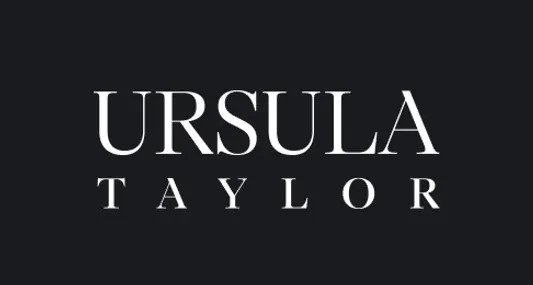Ursula Taylor: From Courtroom Battles to Corporate Healing
The article, "From Courtroom Battles to Corporate Healing: How Ursula Taylor Redefines Resolution Beyond Winning and Losing," was featured on CEO Weekly.
No one truly wins in litigation. That was the realization that eventually led attorney Ursula Taylor to step away from a seventeen-year legal career and explore something that she believed could be quite different. “Nobody builds profits from blame and fault,” she explains. “Righteousness and victimhood don’t typically drive the bottom line, yet we have built a multi-trillion-dollar industry on it.”
Taylor knows this firsthand. When she entered law school, she didn’t even enjoy conflict. Law, she thought, would be an elevated, civilized way to manage differences. “We are in suits, talking to a judge in a fancy courtroom, using big words, it had to be different, right? It was not,” she says. Instead, she found herself in a system built on fighting, fault-finding, and making someone else wrong. Every argument had a counter, every brief had a rebuttal, and winning often felt more like arm wrestling than making real progress.
Still, like many of her peers, she kept going. She grew into her own practice, advising clients and running a firm. But even in her successes, something didn’t sit quite right. “Even when you win in litigation, you are still contending with the massive price tag, and nobody truly wins anyway,” she reflects. Trials dragged on, appeals loomed, and clients were left drained financially and emotionally. “The business case is not there. What drives every dispute is always human emotion, and that is often not understood or addressed in our formal legal systems.”
By 2022, Taylor could no longer ignore the truth. Some cases that landed on her desk seemed avoidable. She recalls listening to a recorded call between parties on one dispute and immediately recognizing that the fight was not legal at all; it was emotional. But as outside counsel, she was restricted from addressing the humans behind the case. “They wanted me to resolve it with legal tools, but I couldn’t. I was not allowed to talk to the people who actually had the power to change things,” she says. Burned out, she began declining matters and eventually closed her practice.
The decision was less about walking away and more about moving toward something different. What came next was Conflict Reimagined, her venture dedicated to shifting how businesses approach tension and disputes. “What I do now is highly customized,” Taylor says. “I help clients before litigation, during disputes, and within leadership teams. It can be one-on-one work, team workshops, or consulting around disputes, but always with the understanding that conflict is human emotion first.”
Conflict Reimagined offers executive training, leadership development, and dispute-avoidance and negotiation strategies rooted in psychology, mindfulness, and trauma-informed practices. At the heart of it is helping leaders understand what’s really driving friction. “When you are operating from that charged emotional place, you can’t always see clearly. You are smaller, more limited, and less effective,” Taylor explains. “But when you find and release that fear-based emotion, you can begin to return to being the creative, powerful force you are.”
The outcomes of ignoring conflict, she warns, can be severe: companies stall, partnerships dissolve, and organizations can suffer. The alternative is often simpler than leaders realize. By combining her litigation background with healing modalities, she helps teams reset, strengthen trust, and refocus on growth. One executive team she worked with faced escalating tension just as they were preparing to scale rapidly. Through regular workshops, Taylor helped them level set, align objectives, and potentially avoid what could have been a costly breakdown.
Now, her mission is to show companies that “winning” doesn’t mean proving someone else wrong. It means growth, clarity, and alignment. And it begins by accepting the humanity behind every dispute. “Any conflict, no matter how egregious the other person’s behavior, is an invitation to look inward,” Taylor says. “If it affects you, it likely means you have a piece of it. When you find that and release it, you can influence your counterparts and your teams more effectively. You see differently, you lead differently, you create differently, and through it all, you can become a changemaker.”
Conflict Reimagined is still young, but its vision is ambitious: to help businesses reduce the need for expensive and uncertain battles and instead channel energy into creation and growth. In a corporate world where litigation has long been the default, Taylor offers an alternative perspective, a reminder that business is not built on blame or fault, but on relationships, purpose, and creative power.

